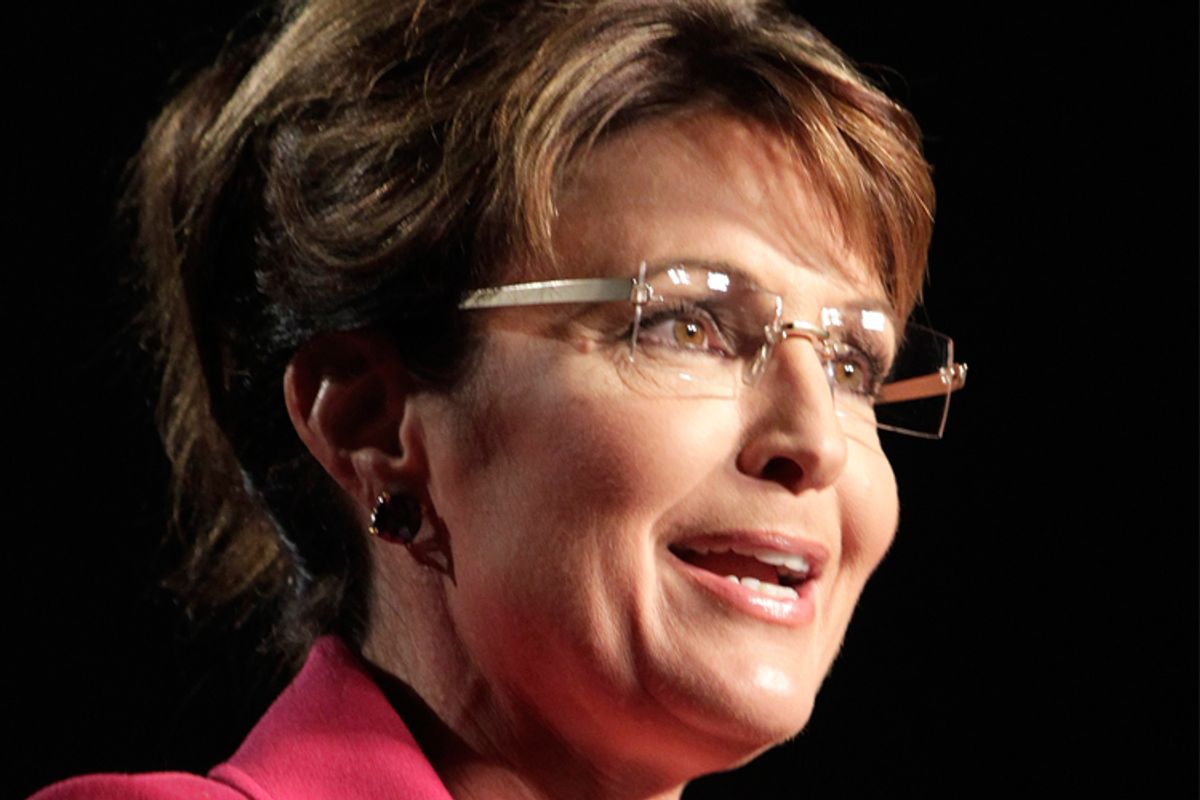It was clear in late December, long before the world was introduced to Jared Loughner, that Sarah Palin's standing with the Republican electorate was growing shaky. Between the end of 2009 and the end of 2010, a CNN poll found, nearly one in five Republican voters had changed their mind about the idea of a Palin White House campaign, deciding that they'd be unlikely to back one. No other '12 heavyweight suffered a remotely similar decline. The willingness of several influential conservatives in late-'10 to voice skepticism over a Palin candidacy seemed to be taking a toll.
Thus, it is not insignificant that Newt Gingrich used a "Good Morning America" appearance today to warn that Palin needs to "be more careful and think through what she's saying and how she's saying it."
"There's no question that she has become more controversial," Gingrich said.
It's hard to believe that Gingrich, who may end up running for president (or who may be in the midst of yet another White House head fake), would have been comfortable making a statement like this even a few months ago, when Palin-esque candidates were scoring improbable wins in major GOP Senate and gubernatorial primaries. Back then, it seemed as if any Republican who dared challenge Palin risked becoming the next Mike Castle or Bob Bennett.
Ironically, though, the '10 primaries also may have served as a wake-up call, with even conservative leaders realizing that the same party that nominated Christine O'Donnell, Sharron Angle and Joe Miller could potentially nominate Palin in '12 -- and that doing so would significantly increase Barack Obama's reelection chances, even if the economy remains stalled. The weeks after the November election were notable for an apparent increase in the number of conservative commentators who were suddenly willing to deliver some version of the same basic message: We like Sarah Palin, but we're not so sure nominating her for president is a good idea.
Now, all these months later, there is polling evidence to suggest that the GOP base is embracing this same view. (For what it's worth, a new USA Today/Gallup poll finds that Palin's unfavorable rating has spiked to an all-time high of 53 percent in the wake of Tucson, although it's not immediately clear what the breakdown among Republicans is.) In this climate, it's safer for Gingrich to join the pile-on when Palin attracts negative press attention -- just as it's safer for Chris Christie, a potential '12 dark horse, to attack Palin for avoiding "unscripted moments," and just as it was safer for Mike Huckabee to side with Michelle Obama when Palin picked a fight with her just before Christmas.
As I wrote last week, Palin's Tucson response won't by itself destroy her '12 prospects, and the political finger-pointing of the last 10 days may be a distant memory by the time Iowans holds their caucus next winter. But Palin's response may end up accelerating a process that was already underway within the Republican Party. Newt Gingrich now feels comfortable going after Palin in public. Who's next?



Shares